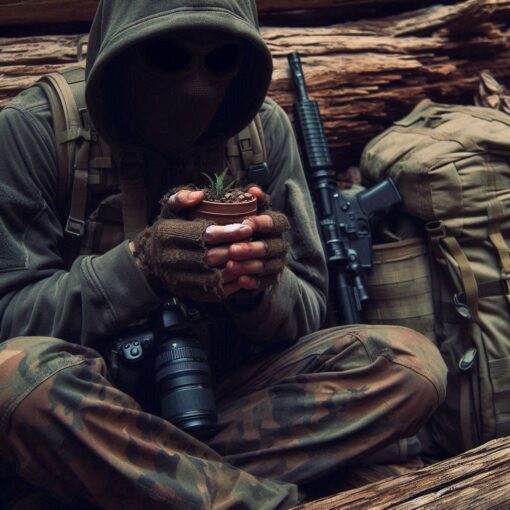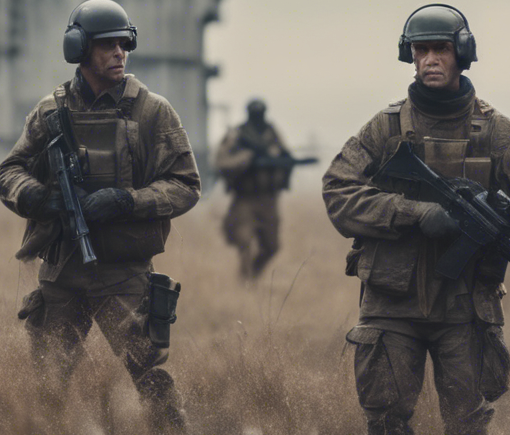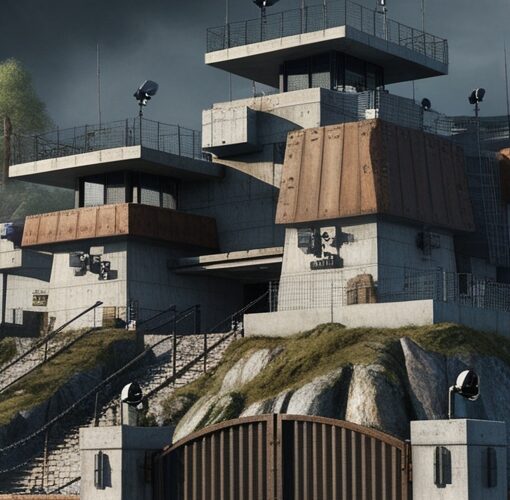Hey there, fellow survival enthusiasts! Have you ever found yourself daydreaming about what you’d do if the world turned upside down? Maybe it’s that gripping TV show or a thrilling novel that got your imagination racing.
But let’s face it—survival isn’t just about building fires and foraging for berries. It’s also about staying safe when trouble comes knocking at your door. So, grab your gear, and let’s dive into some practical defense tactics every survivalist should know!
Situational Awareness: The First Line of Defense

First up is situational awareness—think of it as your survival superpower! Being aware of your surroundings can make all the difference between staying safe and getting caught off guard. Imagine walking through a bustling market; instead of being glued to your phone, take a moment to soak in the sights and sounds around you.
Keep an eye out for anything unusual. Is someone acting suspiciously? Are there too many people crowding one area? By tuning into these cues, you can spot potential threats before they escalate. Remember that time I noticed something odd at a crowded event? Trusting my gut led me to avoid a situation that could have gone sideways.
Practicing this skill doesn’t require fancy gadgets or high-tech training—just pay attention! You can start by observing how people interact in different environments or even role-playing scenarios with friends to sharpen those instincts.
Interestingly enough, experts say that 90% of safety is simply being aware of what’s going on around you. So why not make it a habit? After all, staying alert is free!
Self-Defense Techniques: Empower Yourself

Now let’s talk about self-defense techniques because knowing how to protect yourself can be empowering—and vital! Whether you’re facing an aggressive person or just want to feel more secure during outdoor adventures, having some skills under your belt is crucial.
Consider taking classes in martial arts or self-defense courses. Not only will these help improve your physical fitness, but they’ll also boost your confidence levels significantly. Picture this: You walk into a room full of tough-looking folks, but thanks to your training, you hold your head high like a superhero ready for action!
If formal classes aren’t feasible right now, there are plenty of online resources available—from instructional videos to guides on basic techniques like escaping holds or using leverage against an attacker. And remember: self-defense isn’t always about fighting back; sometimes it’s about evasion and de-escalation.
Also, think about carrying personal safety tools such as pepper spray or tactical pens (they’re not just cool gadgets!). These items can give you an edge if things get dicey—but don’t forget that their primary purpose is deterrence rather than aggression.
In short: equip yourself with knowledge and skills so you feel ready for anything life throws at you!
Emergency Plans: Be Prepared
Speaking of readiness, let’s discuss emergency plans because preparation is key when times get tough! Having clear plans in place ensures everyone knows what steps to take during crises—whether natural disasters or civil unrest.
Start by mapping out escape routes from home and identifying safe locations where family members can regroup if separated (think rendezvous points). It might sound like something out of a spy movie, but trust me—it pays off big time!
Next up: communication strategies! In today’s tech-driven world, we often rely heavily on our phones; however, during emergencies (like power outages), those devices may fail us. Consider establishing alternative methods such as designated meeting spots or signals (a flashlight blink pattern works wonders!).
And hey—don’t forget about supplies! Stockpiling essential items like food reserves and first aid kits helps ensure you’re equipped when disaster strikes. Creating checklists for each family member can simplify this process while keeping morale high—even if things seem chaotic outside.
To wrap it up nicely: crafting thorough emergency plans keeps everyone informed and prepared no matter what happens next!
Community Networking: Strength in Numbers
Finally—and perhaps most importantly—is community networking because there’s strength in numbers! Building connections with neighbors and local groups creates support systems that enhance safety during troubled times.
Start by introducing yourself to neighbors—after all, they’re likely facing similar challenges as you! Organizing community meetings fosters open dialogue regarding safety concerns while allowing individuals to share valuable skills (maybe someone knows how to build traps while another has gardening expertise).
Consider joining local survivalist groups or forums where members exchange tips on everything from food preservation techniques to defense strategies tailored specifically for challenging situations ahead.
By fostering these relationships within your community network means more eyes watching out for each other—a crucial advantage when navigating uncertain circumstances together!
In summary: cultivating strong connections lays the groundwork for mutual support during difficult times ahead!
Resources:
Survival Skills Handbook
https://www.survivalskills.com
Self-Defense Techniques Explained
https://www.selfdefense101.com
Emergency Preparedness Guide
https://www.ready.gov/emergency-preparedness




